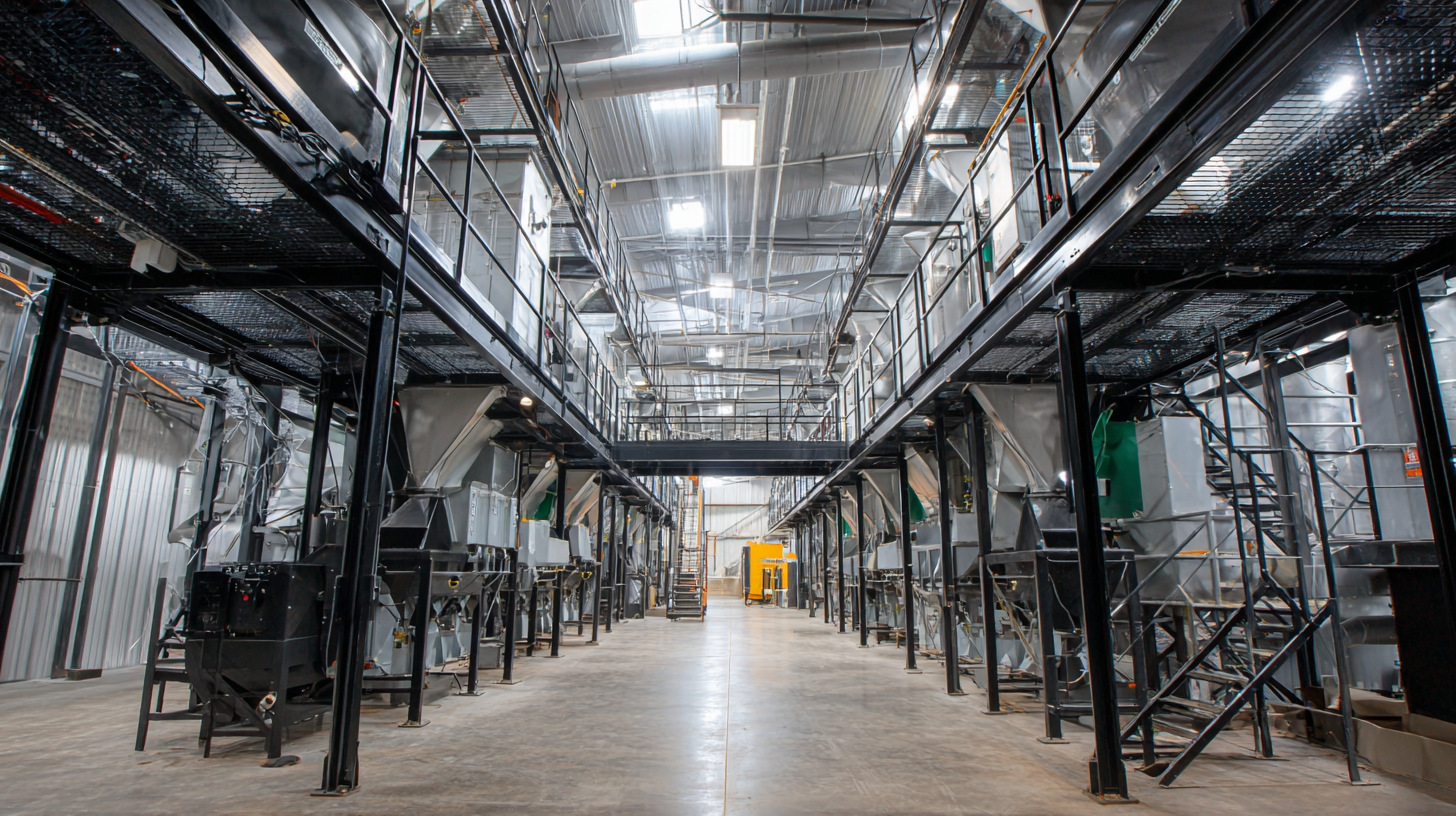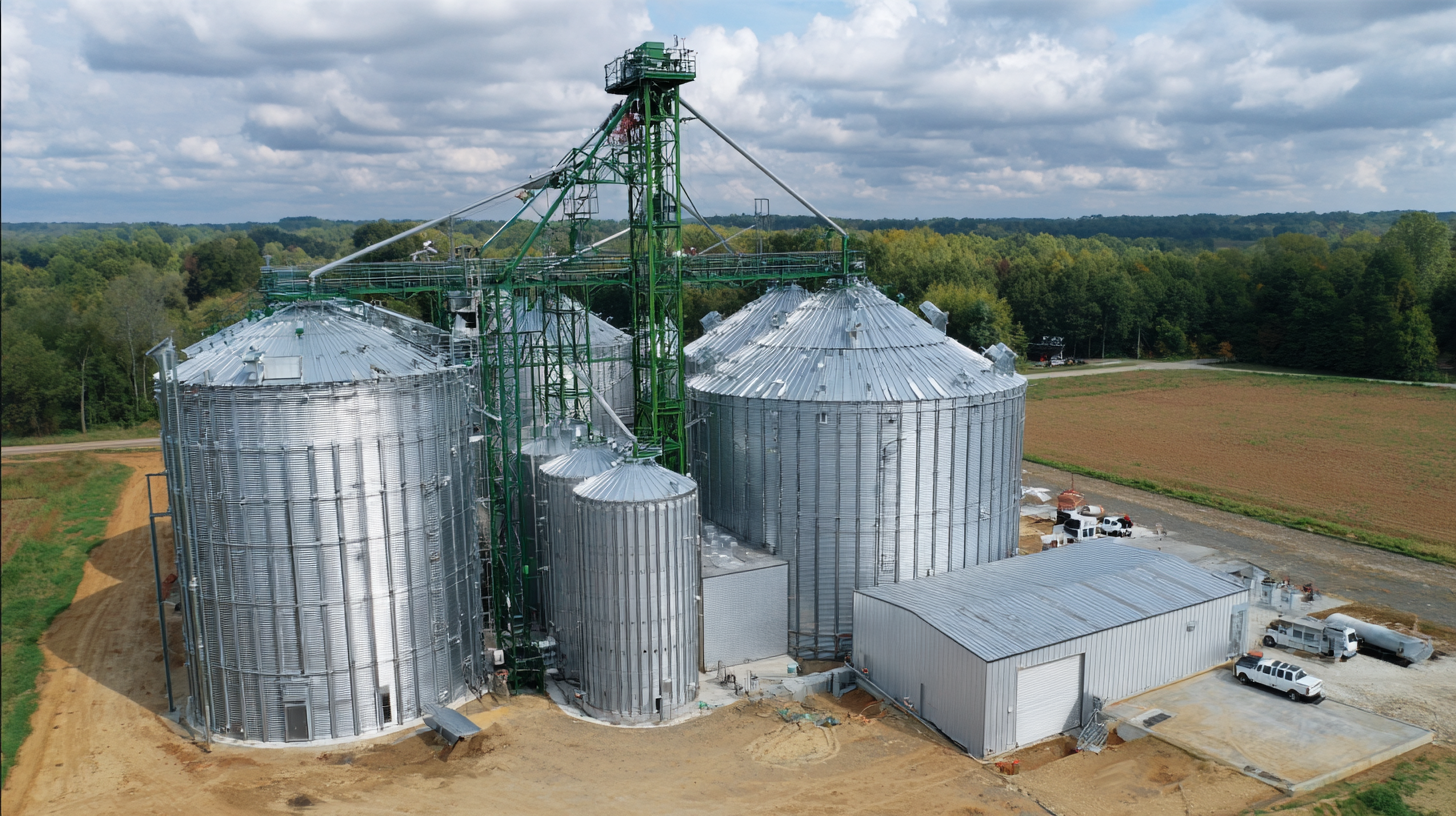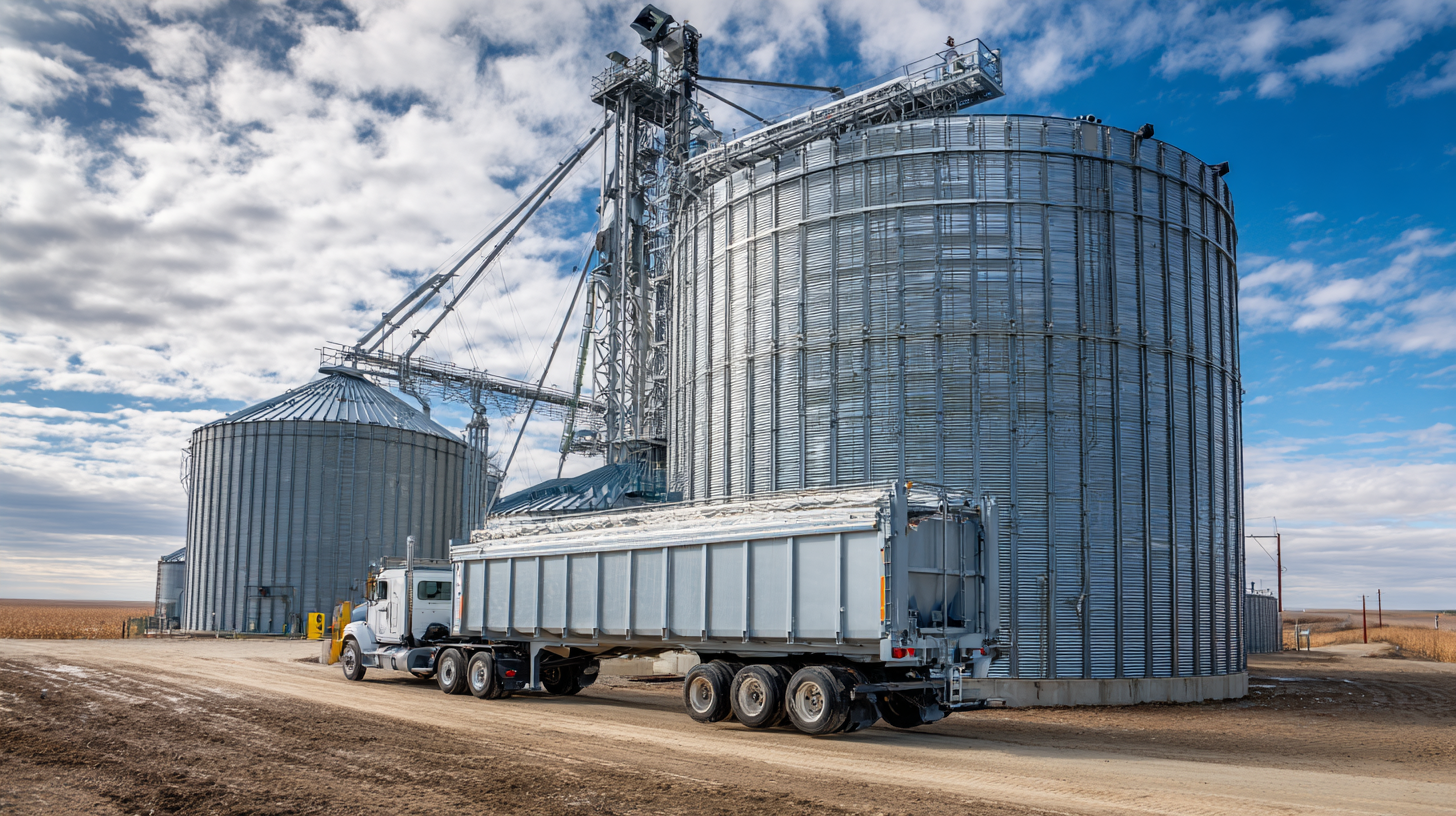Leave Your Message
When it comes to agriculture, selecting the right equipment can make all the difference in ensuring high-quality yields and effective post-harvest management. One of the most crucial tools in this process is a reliable Grain Dryer. With a plethora of manufacturers in the market, making an informed choice can be challenging. In this blog, we will explore how to navigate the complexities of selecting a manufacturer that aligns with your specific Grain Dryer needs. By focusing on expert solutions and the benefits of partnering with trusted Chinese manufacturers known for their unwavering quality, we aim to equip you with the knowledge necessary to make the best decision for your agricultural operations.
Join us as we delve into key considerations that will help you choose the right manufacturing partner for your Grain Dryer, ensuring efficient drying processes and enhanced productivity in your farming ventures.

When selecting a grain dryer, understanding the unique features and advantages of different drying methods is essential. Recent studies highlight significant differences in drying characteristics and efficiency. For instance, research comparing various drying methods for maize indicates that mobile dryers often outperform traditional sun drying in both efficiency and cost-effectiveness. The advanced configurations can significantly reduce the unit drying cost while enhancing the quality of the dried grain.

In recent advancements, some manufacturers are incorporating innovative technologies such as hyperspectral imaging to improve drying processes. This approach allows for a more precise assessment of different drying methods, ensuring better optimization of energy use while maintaining the quality of the product. Additionally, the development of computer-based simulation models for conventional and reversible airflow flatbed dryers indicates a shift towards more efficient and predictable drying systems, which further exemplifies the evolution of grain drying technology.
These improvements mark a pivotal shift in grain drying methods, making it imperative for farmers and suppliers to stay informed about the latest developments to enhance their operations and ensure the highest quality of grain production. The integration of these advanced features can lead to higher energy efficiency and reduced emissions, ultimately benefiting both producers and consumers in the agricultural sector.
When selecting a grain dryer manufacturer, it is essential to consider several critical factors that can impact your operations. According to the 2022 National Agricultural Statistics Service report, grain moisture content is a significant determinant of drying efficiency. A good manufacturer should provide dryers that optimize moisture removal while maintaining grain quality. Look for models that use advanced technology, such as infrared sensors, which can reduce energy consumption by up to 20%, a crucial factor in today’s cost-sensitive agricultural environment.
Tip: Always evaluate the energy efficiency ratings of grain dryers. Models with higher efficiency not only lower operating costs but also contribute to a more sustainable farming practice.
Moreover, the manufacturer's reputation and support services play a vital role in your decision-making process. A survey conducted by the Agricultural Equipment Manufacturers Association revealed that over 60% of farmers stress the importance of reliable customer service and technical support. This can significantly affect downtime and overall productivity, so consider manufacturers who offer comprehensive warranties and easy access to parts and service.
Tip: Reach out to other farmers to get testimonials about their experiences with specific manufacturers. Peer reviews are invaluable in making an informed choice.
| Key Considerations | Details |
|---|---|
| Manufacturer Experience | Years in the industry and expertise in grain drying technologies. |
| Product Range | Variety of models catering to different capacities and grain types. |
| Technology Used | Incorporation of advanced drying technologies for efficiency. |
| Customer Support | Availability of technical support and service options. |
| Warranty and Guarantee | Length and terms of warranty for the equipment. |
| Pricing Structure | Cost-effectiveness and overall value for performance. |
| Customer Reviews | Feedback and ratings from previous buyers and users. |
| Distribution and Installation | Ease and cost of installation, and availability of distribution. |
When selecting a grain dryer, understanding performance metrics such as efficiency, capacity, and versatility is crucial. According to the U.S. Department of Agriculture, dryers with a thermal efficiency rating above 80% can significantly reduce energy costs, which can range from $0.05 to $0.12 per bushel of grain dried. This emphasizes the importance of finding a model that not only meets your drying requirements but also operates efficiently to minimize expenses in the long run.
Capacity is another essential factor, as the right grain dryer should align with your operational needs. Industry studies suggest that dryers with a capacity exceeding 1,500 bushels per hour can effectively accommodate larger harvests, thus saving time during peak seasons. Moreover, versatility in grain handling can enhance productivity, allowing the dryer to process various types of crops without requiring extensive modifications.
Tips: Always check for models featuring advanced control systems that allow you to monitor and adjust drying conditions in real-time. Additionally, consider integrating a moisture sensor, which can help avoid over-drying and subsequently reduce grain quality loss. By focusing on these metrics, you can ensure that your investment in a grain dryer meets both your present and future agricultural demands.

When choosing the right grain dryer, it is crucial to tailor your equipment to the specific crop types you are processing. Different crops have distinct moisture content and drying requirements, making the selection of a grain dryer not just a matter of capacity but of compatibility and efficiency. For instance, recent advancements highlight the importance of adaptability in grain dryers to meet the changing agricultural conditions, especially in regions facing unpredictable harvests. A manufacturer that provides customizable solutions can ensure that your investment meets the unique challenges of your crop variety.
Additionally, farmers should consider tips for hiring a grain marketing firm as they process their crops. Effective marketing strategies can alleviate stress, particularly in volatile markets. Engaging with experts who understand the intricacies of marketing can complement your grain drying processes by enhancing profitability.
As agricultural practices evolve, so too does the need for high-performance drying solutions. Cutting-edge technology in grain drying not only preserves crop quality but also contributes to greater productivity, a necessity as climate variability threatens crop yields. Tailoring these solutions to the specific needs of your crops can significantly enhance your operational success in today’s competitive agricultural landscape.
When selecting the right manufacturer for your grain drying needs, it's essential to evaluate not just the equipment but also the support and technological advancements that accompany it. The global freeze-drying equipment market is projected to grow from $2.22 billion in 2024 to $3.83 billion by 2032, highlighting the increasing demand for innovative drying solutions across various sectors. This trend also reflects a broader movement towards automation and efficiency within the agricultural industry.
Incorporating advanced technologies in grain drying systems can significantly enhance performance and yield. For instance, smart factories are emerging rapidly, with regions such as Liangping in Chongqing boasting 17 projects recognized for their advancements in sectors like food processing and agriculture. These innovations not only streamline operations but also improve reliability and energy efficiency—key factors that farmers must consider when choosing a manufacturer.
**Tips:** When assessing manufacturers, look for those that offer robust after-sales support and training for your team. Additionally, prioritize companies that invest in R&D for continuous technological improvements, ensuring your grain drying equipment remains up to date with the latest industry advancements. Finally, evaluate customer testimonials and case studies to gauge the effectiveness of their products in real-world applications.
